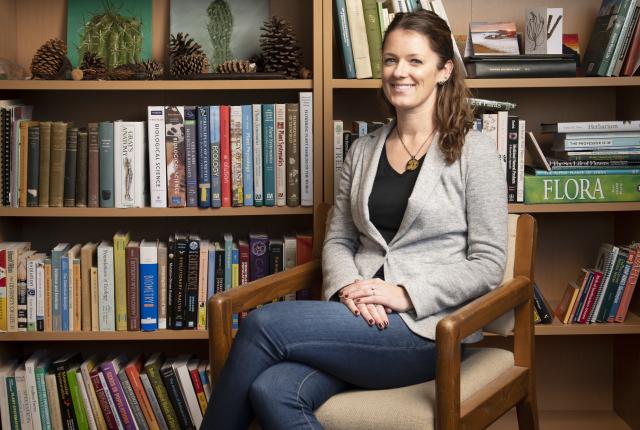In January 2021, Hannah Marx joined the University of New Mexico as an associate professor and curator of the Herbarium of the Museum of Southwestern Biology, which has a collection of 130,582 specimens. After falling in love with wildflowers while working as a housekeeper at an Idaho mountain lodge, she received her doctorate studying plant communities on mountaintops. Marx and her students can be found this summer on New Mexico’s summits, collecting, pressing, and documenting the plant diversity of our state.
THE HERBARIUM IS ESSENTIALLY a plant crypt. The plant collections that we hold are preserved indefinitely, we hope. I love giving tours. Walking through the collection is pretty impressive. We show people the process, from collection and pressing plants in the field to being preserved in the herbarium. We also have high-resolution images of each plant, so you can pull up any collection that we have online and look at a photo of it. You can zoom in on things as fine as the hairs on the leaves.
I got an interesting request recently from an international group to confirm a list of seeds in our collections and to see if any might still be viable. They had identified species that are either very rare or, in some cases, extinct. They were hoping to use the herbarium collection to try to revive those populations. Similar studies have had success with germination from old herbarium specimens. I looked at the species, but there were no well-developed seeds.
I’m particularly interested in high-elevation mountaintop communities. Here in New Mexico, that involves hiking to the summits of mountains and then circling down to the tree line, taking a sample specimen of each species, and making a collection of the entire summit plant community. We’ll press those plants in the field and bring them back into the herbarium. In a hundred years, people can say, “In 2022, this is what the plant community looked like at this site in New Mexico.” That’s an invaluable resource for understanding things such as global climate change.—As told to Christina Selby


